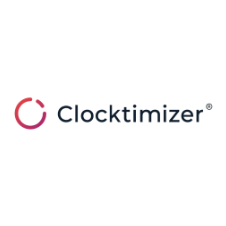Clocktimizer webinar wrap-up: Data driven budgeting
Yesterday saw the third of our half-hour fireside chats, covering the creation, management and implementation of data driven budgets. We were joined by Anshoo Patel, the Associate Director of Practice Innovation at Blank Rome, Mark Medice of LawVision and our own Co-Founder Pieter van der Hoeven. We’ve put together a quick wrap up of some of the practical advice shared by our panelists on this complex topic. For those wanting to continue the discussion, we will be hosting more webinars in coming months looking at the causes and effects of matter leakage and pricing considerations for 2021. Keep an eye on our social media for more information. A recording of the webinar can be found on our Vimeo page.
Does your firm have a pricing and budgeting vision?
According to Clocktimizer and LawVision’s pricing analytics survey, as many as 15% of law firms do not have a definitive pricing roadmap. A further 50% of firms are still working on it. With this in mind, the webinar kicked off with a poll to determine which pricing and budgeting projects were critical among audience members.
The panelists were unsurprised that redesigning pricing and budgeting processes came out on top. When done well “it is critical in driving the bottom line and presents a lot of opportunity” according to Anshoo.
Designing your matter lifecycle
In light of the poll, both Pieter and Anshoo shared valuable insights into how to improve the design of your matter lifecycle. At Blank Rome, Anshoo has been working closely with the Clocktimizer platform and LawVision to integrate data at every stage to reduce assumptions and improve the accuracy of pricing and budgets.
Ensure you have data at the matter planning stage – Anshoo shared that data is important before you have even pitched to a client. Data can help decide questions about how to staff matters, whether the work will be profitable for the firm, whether client expectations can be met. If you are unable to answer these questions, your firm is likely to take on clients or work which will become problematic later.
Work with tools which speed up analysis – Pieter talked through how Clocktimizer currently speeds up analysis for their customers at every stage of the matter lifecycle. At the planning stage, Clocktimizer’s algorithms enable fee quotes to be put together in a matter of seconds (handy for those last minute quote requests from clients). Clocktimizer also keeps track of out of scope or over budget work as it happens. So no difficult conversations with clients about unexpected fees three months down the line. Finally, Clocktimizer enables quick analysis of a matter to determine what went well, what could be better and which activities or tasks need automation or improvement.
Ensure compliance with your pricing policy – Pieter shared a case study with a client who requests a budget estimation at the opening of every matter. If it falls above a set threshold then the pricing team is automatically involved. If the partner assumes the matter will cost less than the threshold, but this later proves to be wrong, this is equally useful information. Why did they underestimate the value of the matter and how can we address this for similar matters going forward. Blank Rome also has a mechanism which ensures new matters have the pricing team’s approval so pricing irregularities do not fall through the cracks. Every firms should have such procedures in place to ensure consistent strategy.
Define your taxonomy – An member of the audience enquired about how to define representative matters for building budgets. Anshoo shared the importance of cleaning your data and defining taxonomy to make better like-for-like comparisons between matters. At Blank Rome they use a combination of a tighter list of practice codes and a Foundation database. Tools like Clocktimizer can also be used to read and categorise narratives directly, which also reduces poor code use.
Introducing a smart budget workflow
For all firms considering building a data driven matter lifecycle, Mark shared the one put together by LawVision and Blank Rome. As noted by Anshoo, this incorporates data at every stage; to scope, monitor and finally evaluate.
Our panelists highlighted the importance of involving management in the integration of a smart budget strategy. Anshoo and her team meet regularly with leadership to share their progress. First to share strategy and vision, and then later to demonstrate their data and how they can use it to respond to client requests. In having Senior Partners buy in to the work of the Pricing and LPM team, you can accelerate adoption.
Key takeaways
Both of our panelists were asked to share three takeaways for those listening. First, Anshoo shared her essential tips for anyone working in Pricing:
Get help – At Blank Rome they were sitting on huge piles of data, but the team was not equipped to handle it. By partnering with LawVision and Clocktimizer, Anshoo was able to accelerate the use of that data to make informed choices.
Understand your pain points – Technology is never a perfect solution. Not only will you need to test and tailor new software to the way your firm works, but you will also need to bring people on board too. By understanding your pain points, you can improve this process.
Clean your data – As the famous saying goes – “garbage in, garbage out”. Because understanding how you use your time is essential, taking the time to clean your time entries and narratives will produce better pricing choices later on. Augment your existing time data with industry data and elevate the sophistication of your pricing team.
Pieter equally focused on the importance of laying good foundations to ensure better outcomes:
Start with the why – if you understand why you are doing something, then you can improve the process. Why do you want to get better at pricing and budgets? Is it to improve your relationship with your clients? If so, try to understand how you can best achieve this goal and then use data to support that.
Ensure you have the right data – Having defined the why, ask yourself if you can answer that question properly with the data you have. If you do have that data, question the quality of it. Is it as accurate as it could be?
Don’t surprise your clients – One of the single biggest reasons firms lose clients are surprises during billing. You shouldn’t get to the end of a matter only to realise that you have gone over budget. Passing off this to clients leads to disappointment and a loss in confidence of your ability to handle a matter. Using tools like Clocktimzier ensures that you never go unexpectedly over budget again.



